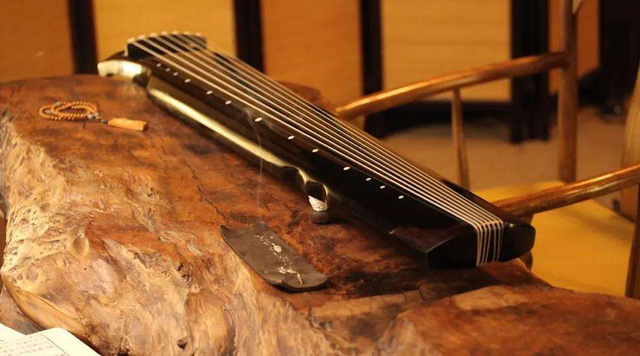Guqin practice should be "slow"
How to practice guqin? In ordinary guqin practice, you should practice slowly. What are the advantages of slow practice of guqin? Slow practice is like a magnifying glass, which expands all the details in the music, so that people can carefully pay attention to every cell of the music. Slow training is the basis for overcoming all technical obstacles. Its greatest advantage is that it is timely to think, prepare, and adjust and correct shortcomings and defects according to the feedback information obtained from vision and hearing. The meaning and reason of slow training is very clear, but there are many people who do not practice slowly. As a result, although they have practiced for a long time, they have made little progress!

One way to slow down is to control yourself with the beat. If you learn new guqin music, stuttering fast, you can only get a confused sound. Slow down so that your eyes can see and your hands can be prepared in time, so that you can recognize notes accurately according to the correct relationship specified in the music score, and you can also use correct fingering. In this way, it seems that the speed is very slow, but the correct sound and rhythm relationship, correct fingering and playing effect are obtained. It can avoid spending more time and energy on correcting preconceived errors afterwards. From the perspective of the practice method, if you start quickly, you will not reach the goal if you want to start quickly. However, if you start slowly, you will really lay a good foundation and create conditions for fast.
From the perspective of guqin skill practice, the standardization and accuracy of technical actions depend on the control and correction of consciousness, which can only be achieved at a slower speed. If there is no conscious standard requirements at the beginning, it will be more difficult to correct once the action forms a habit.
The question to be emphasized is whether a piece of guqin music needs to be practiced slowly after it is fully practiced. Many students will ignore or refuse to do slow exercises at this time. This may be because the meaning of the exercise at this stage is not clear. Everything has its own law of development. For example, the produced crispy biscuits will become soft; The new soft bread will harden. The soft becomes hard, and the hard becomes soft. How can this happen? In physics, it is called "disorder", that is, a law that things go to the opposite side.
Similarly, if a mature Guqin music is not consciously strengthened and consolidated at an appropriate slow speed, the subconscious habitual actions will gradually become vague, inaccurate and unreliable, which may cause mistakes in performance; In terms of musical expression, it will gradually lose its clearness, delicacy and ingenuity due to lack of conscious training, thus losing the persuasiveness and appeal of artistic expression. Therefore, even after the mature work practice, we should not neglect the appropriate slow practice.
 渝公网安备 50010702504639号
渝公网安备 50010702504639号